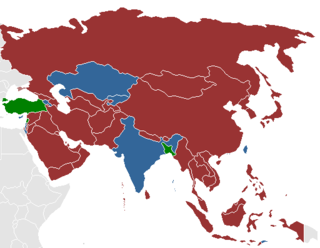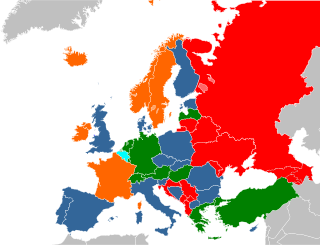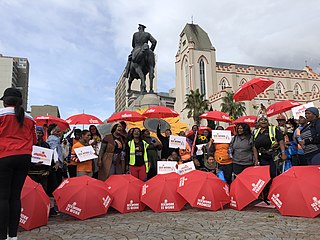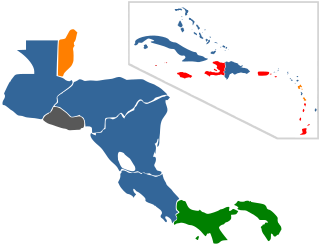Related Research Articles

Nevada is the only U.S. state where prostitution is legally permitted in some form. Prostitution is legal in 10 of Nevada's 17 counties, although only six allow it in every municipality. Six counties have at least one active brothel, which mainly operate in isolated, rural areas. The state's most populated counties, Clark and Washoe, are among those that do not permit prostitution. It is also illegal in Nevada's capital, Carson City, an independent city.

Prostitution in Germany is legal, as are other aspects of the sex industry, including brothels, advertisement, and job offers through HR companies. Full-service sex work is widespread and regulated by the German government, which levies taxes on it. In 2016, the government adopted a new law, the Prostitutes Protection Act, in an effort to improve the legal situation of sex workers, while also now enacting a legal requirement for registration of prostitution activity and banning prostitution which involves no use of condoms. The social stigmatization of sex work persists and many workers continue to lead a double life. Human rights organizations consider the resulting common exploitation of women from East Germany to be the main problem associated with the profession.

Prostitution in Taiwan was made illegal under a 1991 law. Legislation was introduced in 2011 to allow local governments in Taiwan to set up "special zones" where prostitution is permitted. Outside these zones prostitution is illegal. As of 2017 no "special zones" had been opened.

In Great Britain, the act of engaging in sex as part of an exchange of various sexual services for money is legal, but a number of related activities, including soliciting in a public place, kerb crawling, owning or managing a brothel, and pimping, are illegal. In Northern Ireland, which previously had similar laws, paying for sex became illegal from 1 June 2015.

Prostitution is legal in India, but a number of related activities including soliciting, kerb crawling, owning or managing a brothel, prostitution in a hotel, child prostitution, pimping and pandering are illegal. There are, however, many brothels illegally operating in Indian cities including Mumbai, Delhi, Kolkata, Pune, and Nagpur, among others. UNAIDS estimate there were 657,829 prostitutes in the country as of 2016. Other unofficial estimates have calculated India has roughly 3 million prostitutes. India is widely regarded as having one of the world's largest commercial sex industry. It has emerged as a global hub of sex tourism, attracting sex tourists from wealthy countries. The sex industry in India is a multi-billion dollar one, and one of the fastest growing.

Prostitution is illegal in the vast majority of the United States as a result of state laws rather than federal laws. It is, however, legal in some rural counties within the state of Nevada. Additionally, it is decriminalized to sell sex in the state of Maine, but illegal to buy sex. Prostitution nevertheless occurs elsewhere in the country.

Procuring, pimping, or pandering is the facilitation or provision of a prostitute or other sex worker in the arrangement of a sex act with a customer. A procurer, colloquially called a pimp or a madam or a brothel keeper, is an agent for prostitutes who collects part of their earnings. The procurer may receive this money in return for advertising services, physical protection, or for providing and possibly monopolizing a location where the prostitute may solicit clients. Like prostitution, the legality of certain actions of a madam or a pimp vary from one region to the next.
Prostitution is the business or practice of engaging in sexual activity in exchange for payment. The definition of "sexual activity" varies, and is often defined as an activity requiring physical contact with the customer. The requirement of physical contact also creates the risk of transferring infections. Prostitution is sometimes described as sexual services, commercial sex or, colloquially, hooking. It is sometimes referred to euphemistically as "the world's oldest profession" in the English-speaking world. A person who works in the field is usually called a prostitute or sex worker, but other words, such as hooker, putana, or whore, are sometimes used pejoratively to refer to those who work as prostitutes.
Current laws passed by the Parliament of Canada in 2014 make it illegal to purchase or advertise sexual services and illegal to live on the material benefits from sex work. The law officially enacted criminal penalties for "Purchasing sexual services and communicating in any place for that purpose."

The legality of prostitution in Europe varies by country.
Melissa Farley is an American clinical psychologist, researcher and radical feminist anti-pornography and anti-prostitution activist. Farley is best known for her studies of the effects of prostitution, trafficking and sexual violence. She is the founder and director of the San Francisco-based organization, Prostitution Research and Education.

Prostitution laws varies widely from country to country, and between jurisdictions within a country. At one extreme, prostitution or sex work is legal in some places and regarded as a profession, while at the other extreme, it is considered a severe crime punishable by death in some other places. A variety of different legal models exist around the world, including total bans, bans that only target the customer, and laws permitting prostitution but prohibiting organized groups, an example being brothels.
Canada inherited its criminal laws from England. The first recorded laws dealing with prostitution were in Nova Scotia in 1759, although as early as August 19, 1675 the Sovereign Council of New France convicted Catherine Guichelin, one of the King's Daughters, with leading a "life scandalous and dishonest to the public", declared her a prostitute and banished her from the walls of Quebec City under threat of the whip. Following Canadian Confederation, the laws were consolidated in the Criminal Code. These dealt principally with pimping, procuring, operating brothels and soliciting. Most amendments to date have dealt with the latter, originally classified as a vagrancy offence, this was amended to soliciting in 1972, and communicating in 1985. Since the Charter of Rights and Freedoms became law, the constitutionality of Canada's prostitution laws have been challenged on a number of occasions.
The passage of the Canadian Charter of Rights and Freedoms in 1982 allowed for the provision of challenging the constitutionality of laws governing prostitution law in Canada in addition to interpretative case law. Other legal proceedings have dealt with ultra vires issues. In 2013, three provisions of the current law were overturned by the Supreme Court of Canada, with a twelve-month stay of effect. In June 2014, the Government introduced amending legislation in response.

Canada (AG) v Bedford, 2013 SCC 72, [2013] 3 SCR 1101 is a decision of the Supreme Court of Canada on the Canadian law of sex work. The applicants, Terri-Jean Bedford, Amy Lebovitch and Valerie Scott, argued that Canada's prostitution laws were unconstitutional. The Criminal Code included a number of provisions, such as outlawing public communication for the purposes of prostitution, operating a bawdy house or living off of the avails of prostitution, even though prostitution itself is legal.
Trisha Baptie is a Vancouver-based citizen journalist and activist for the abolition of prostitution.

Natasha Falle is a Canadian professor at Humber College in Toronto, Ontario, Canada, who was forcibly prostituted from the ages of 15 to 27 and now opposes prostitution in Canada. Falle grew up in a middle-class home and, when her parents divorced, her new single-parent home became unsafe, and Falle ran away from home. At the age of 15, Falle became involved in the sex industry in Calgary, Alberta.
Bridget Perrier is an activist and former trafficked prostitute who cofounded Sex Trade 101 with Natasha Falle. She became a child prostitute at the age of 12 while she was staying at a group home and an older girl there persuaded her to become a runaway in order to sell sex to a pedophile named Charlie. She had a son, Tanner, who developed cancer as an infant and died at the age of five with the dying wish that his mother get out of the sex industry. In 2000, she moved to Toronto from Thunder Bay, Ontario, Canada. She is the stepmother of Angel, whose biological mother was Brenda Wolfe, one of Robert Pickton's murder victims. In 2009, Perrier accompanied Angel at Toronto's Native Women's Resource Centre for the Sisters in Spirit vigil in remembrance of Wolfe and the other more than 500 Canadian Aboriginal women who have been murdered or gone missing over the past 30 years. In 2010, Perrier picketed a courthouse in downtown Toronto in recognition of International Day of No Prostitution. She was joined by Trisha Baptie, Natasha Falle, Katarina MacLeod, and Christine Barkhouse, all former human trafficking victims. In 2012, after being removed from a news conference relating to Bedford v. Canada, Perrier demonstrated a pimp stick to the media, saying that she had been battered with a pimp stick by her pimp every day that he prostituted her. Perrier opposed the legalization of brothels as proposed in Bedford v. Canada, saying, "Having a legal bawdy house is not going to make it any safer. You are still going to attract serial killers, rapists, perverts." Bridget shared her story in the ground breaking article by Dr. Vincent J. Felitti in Cancer InCytes magazine about how childhood trauma is associated with chronic diseases during adulthood and how child trafficking will eventually worsen the economic burden on civil governance.

The decriminalization of sex work is the removal of criminal penalties for sex work. Sex work, the consensual provision of sexual services for money or goods, is criminalized in most countries. Decriminalization is distinct from legalization.

Legality of prostitution in the Americas varies by country. Most countries only legalized prostitution, with the act of exchanging money for sexual services legal. The level of enforcement varies by country. One country, the United States, is unique as legality of prostitution is not the responsibility of the federal government, but rather state, territorial, and federal district's responsibility.
References
- ↑ Michele Mandel (December 2, 2010). "Ontario prostitution laws remain, for now". The London Free Press . Retrieved July 26, 2013.
- ↑ Adrian Humphreys (March 30, 2012). "Sex worker Nikki Thomas talks about normalizing her profession in the light of Ontario's court ruling". National Post . Retrieved July 26, 2013.
- ↑ Melissa Martin (December 7, 2011). "Analysis: What is Canada to do about its sex trade?". Winnipeg Free Press . Retrieved July 26, 2013.
- ↑ Prostitution Debate. Sun News Network . December 9, 2011. Retrieved July 26, 2013.
- ↑ Paula Newton (March 26, 2012). "Canadian province of Ontario legalizes brothels in landmark ruling". CNN . Retrieved July 26, 2013.
- ↑ Charles Adler (June 13, 2011). Prostitution pros and cons. Sun News Network . Retrieved July 17, 2013.
- ↑ Adrian Humphreys (March 26, 2012). "Ontario Court of Appeal greenlights brothels, sweeps aside many of Canada's anti-prostitution laws". National Post . Retrieved July 26, 2013.
- ↑ "Canada: un tribunal ouvre la porte aux maisons closes". Le Point (in French). March 26, 2012. Retrieved July 26, 2013.
- ↑ Prostitution ruling reaction. CBC Television . March 26, 2012. Retrieved July 26, 2013.
- ↑ "Decriminalizing Prostitution". CTV 2 Alberta . May 31, 2011. Retrieved July 26, 2013.